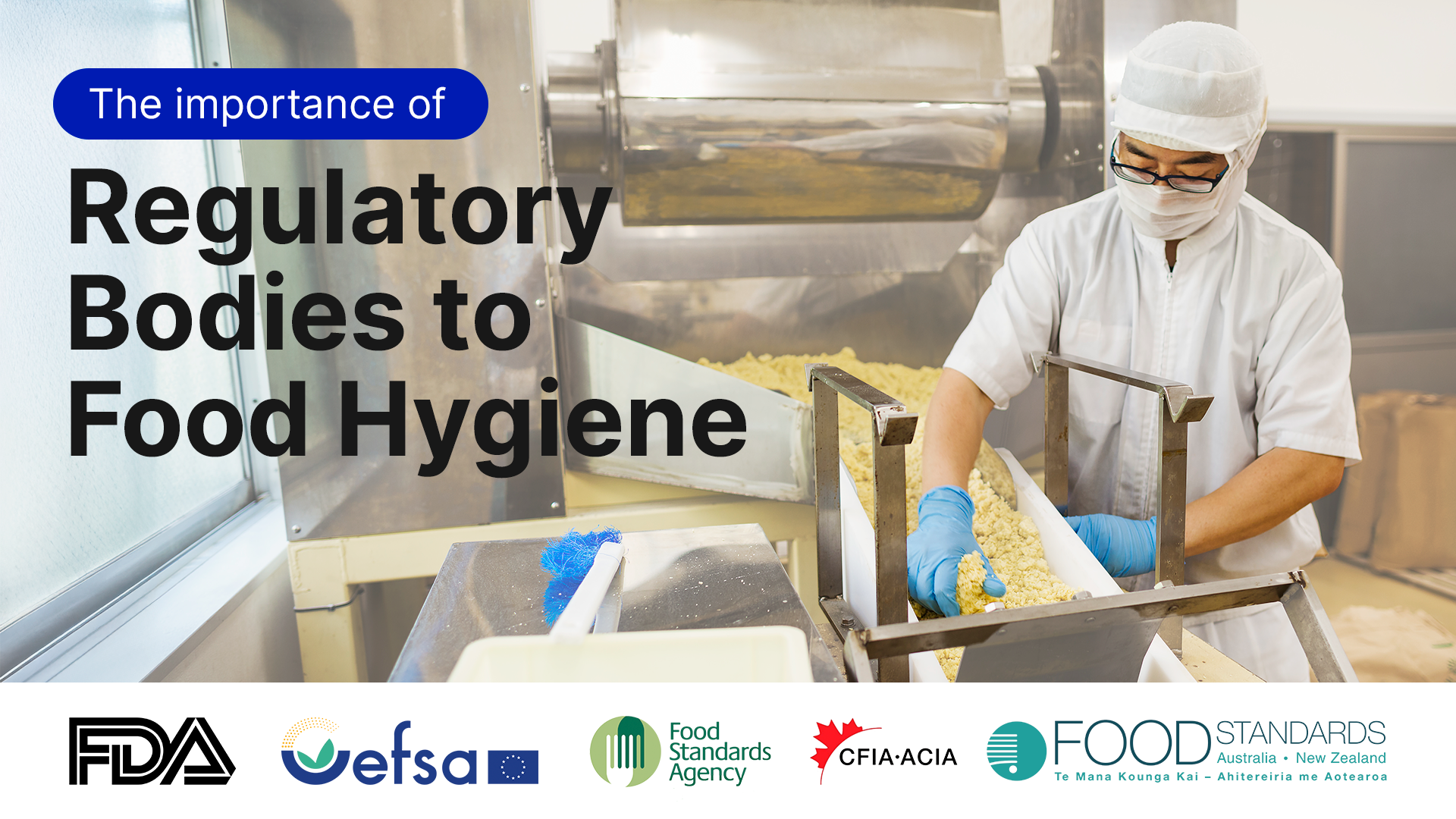The Importance of Regulatory Bodies to Food Hygiene

In the food production and processing industries, we all know that regulatory bodies play a critical role in ensuring the quality and safety of food products for consumers while helping businesses remain compliant and efficient.
It’s important to remember that the regulatory bodies shouldn’t be seen as simply generating red tape designed to tangle up food processing businesses. Instead, they should be welcomed as partners who are helping to raise and maintain standards and ensure the customers receive the best possible food, so the producers of that food enjoy a lucrative business future.
At Detectamet, we didn’t get to be a global leader in detectable products for food safety by ignoring the importance of validation and regulation. Adherence to appropriate regulations is central to our mission.
Let’s cast a light onto the key regulatory bodies and frameworks shaping food hygiene standards globally, the role of validation and why regulation is essential for safeguarding consumers and supporting industry growth.
Why Regulation Matters
Food safety regulations are designed to protect public health, ensure product integrity and foster trust between businesses and consumers. These frameworks function in several ways:
-
Safeguard public health by minimising contamination risks.
-
Ensure consistency in food safety practices across regions.
-
Help businesses meet legal requirements and industry standards.
-
Enhance consumer confidence in the safety and quality of food products.
At Detectamet, compliance with these standards underpins every product we develop, from our award-winning Metal Detectable Nitrile Gloves to our Metal Detectable and X-Ray Visible Elephant Pens.
Key Regulatory Bodies
Regulatory bodies around the world perform similar tasks in order to protect consumers and assist local businesses and these bodies include:
United States: FDA and USDA
In the United States, food safety oversight is primarily managed by two agencies:
Firstly, there’s the Food and Drug Administration (FDA), which oversees most food products, including dairy, produce, seafood and packaged foods. The FDA sets labelling standards, monitors foodborne illnesses and inspects facilities.
Then there’s the U.S. Department of Agriculture (USDA). This regulates meat, poultry and processed egg products through its Food Safety and Inspection Service (FSIS). The FSIS conducts inspections to ensure compliance with food safety laws and prevent contamination. These agencies collaborate on initiatives like food labelling to enhance transparency and protect consumers.
European Union: European Food Safety Authority (EFSA)
The European Food Safety Authority (EFSA) provides scientific advice on food-related risks and helps shape EU laws and policies.
The EFSA’s priorities include risk assessments to identify potential hazards in the food supply chain. They offer scientific advice to help form regulations and policies for managing risks. They are also responsible for public communication and promoting transparency, which helps to build consumer trust.
The EFSA works with national authorities across EU member states to ensure high food safety standards are maintained.
United Kingdom: Food Standards Agency (FSA)
In the UK, the Food Standards Agency (FSA) oversees food safety and hygiene standards. It ensures food is safe, hygienic and accurately labelled. It also collaborates with local authorities to enforce compliance. The FSA also regulates food labelling policies to inform and protect consumers.
Canada: Canadian Food Inspection Agency (CFIA)
The Canadian Food Inspection Agency (CFIA) safeguards Canada’s food supply and ensures compliance with national standards. It does this by conducting inspections of domestic and imported food products. It then enforces regulations related to food safety, animal health and plant protection. The CFIA also collaborates with Health Canada, which sets policies and standards for food safety and nutrition. This partnership ensures comprehensive oversight of food safety practices in Canada.
Australia and New Zealand: Food Standards Australia New Zealand (FSANZ)
FSANZ develops and manages food standards across Australia and New Zealand. It formulates the Australia New Zealand Food Standards Code, which covers food safety, labelling and composition. The organisation conducts scientific risk assessments to guide food safety policies and coordinates with regional authorities to ensure consistent enforcement.
Global Standards: ISO Certification
Beyond regional regulatory bodies there are international standards like ISO certifications, regulated by the International Organisation for Standardisation.
These are vital for harmonising food safety practices - a critical consideration in a world where food can travel from one side of the world to another, either as raw materials or as fully-processed end-products.
Detectamet adheres to ISO standards, including:
ISO 9001: Quality management systems ensuring consistent product quality.
ISO 14001: Environmental management systems to minimise ecological impact.
ISO 45001: Occupational health and safety systems promoting safe workplaces.
You can find out more about our ISO validations, as well as some of the other awards we’ve received in this article.
These certifications enhance our credibility, streamline operations and support global compliance, which benefits both Detectamet and our customers.
Industry-Specific Standards: BRCGS
The BRC Global Standard for Food Safety (BRCGS) is a widely adopted framework that reassures food manufacturers about supply chain resilience and transparency which, in turn, increases customer confidence.
BRCGS can protect your brand and consumer by helping to reduce waste, complaints, recalls and rejected products. In this way it helps to ensure your customers maintain confidence in your food safety programme and supply chain management.
Certification to BRCGS standards demonstrates a commitment to excellence in food safety, a value Detectamet shares.
You can learn more about our commitment to BRCGS certification here.
The Value of Regulation for Businesses and Consumers
At Detectamet, we go beyond compliance. Our detectable products are designed to meet and, where possible, exceed industry standards. By aligning with global and regional regulations, we ensure our customers have access to innovative solutions that support food safety protocols and maintain compliance. The benefits of this are, we feel, numerous…
For Businesses:
Regulations provide a structured framework that helps businesses maintain high standards, avoid recalls and build consumer trust. Compliance with ISO certifications and standards like BRCGS enhances operational efficiency and opens doors to global markets.
For Consumers:
Food safety regulations protect consumers from the dangers of contamination and ensure transparency in labelling. By setting rigorous standards, regulatory bodies foster confidence in the food supply chain and in the food they eat every day.
Detectamet is committed to excellence because food safety doesn’t happen by accident - it happens with care, consistency and the right tools.
You can check out our world-leading range of Metal Detectable and X-Ray Visible food hygiene resources right here. And, if you have a specific, bespoke requirement, get in touch with us here.
 Detectamet Asia (English - $ USD ) Click here to change your currency, region and language.
Detectamet Asia (English - $ USD ) Click here to change your currency, region and language.












